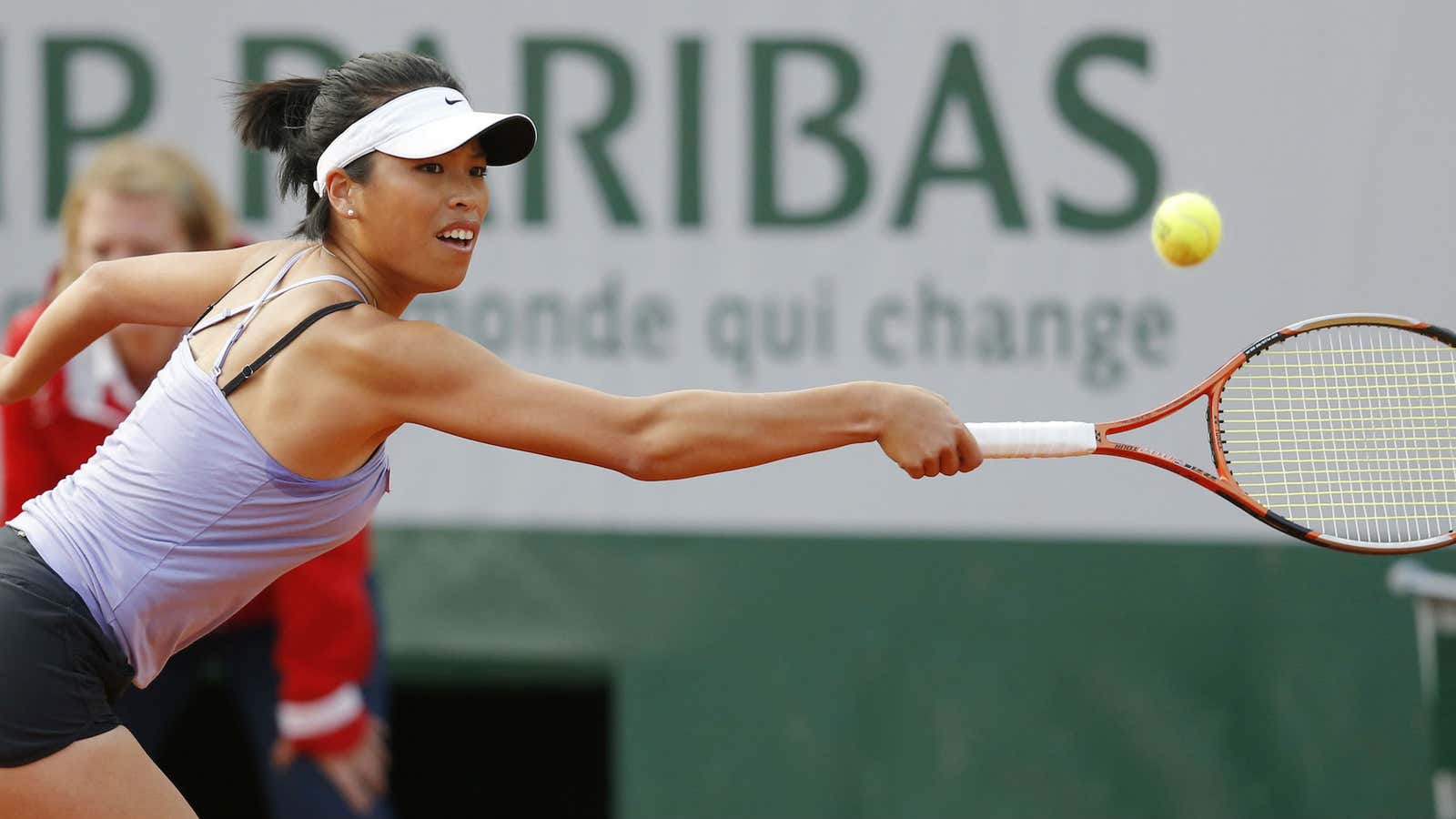Taiwan is defending a form of soft power to thwart its rival China: tennis.
The company behind Taiwan’s best-known beer has signed a preliminary agreement to sponsor Hsieh Su-wei, Taiwan’s first Grand Slam tennis champion. The deal to pay Hsieh possibly NTD 5 million (about $167,700) a year could be signed within the month, Taiwan Tobacco & Liquor Co, the owner of Taiwan Beer, told the China Post on July 16.
The deal saves Taiwan the embarrassing possibility of seeing Hsieh become a mainland Chinese citizen in order to score bigger endorsement deals, as her father hinted after Hsieh and her tennis partner Peng Shuai, a mainland Chinese, won the Wimbledon women’s doubles earlier this month. Taiwan and China have maintained strained but peaceful relations since members of the Chinese nationalist party, the Kuomintang, retreated to the island after communists took over the mainland in 1949. Beijing considers Taiwan part of China, but Taiwan residents have their own passports and elections.
Sports are an important soft power tool for Taiwan, whose formal diplomatic relations with other countries have weakened since China emerged on the world stage. (For years, China pressured countries wishing to form ties with Beijing to drop their recognition of Taiwan. Lately, cross-straight relations have improved.)
Hsieh isn’t the only athlete of concern for Taiwan. After her win, legislators proposed an NTD 1 billion fund to go toward keeping the island’s star athletes. In 2011, Wu Chia-ching, a top pool player gave up his Taiwanese citizenship to become a mainlander. (As we noted previously, he said at the time: “I know I will not be forgiven by many, but I have to take care of tomorrow’s lunch.”) Golfer Yani Tseng may be another athlete that Taiwan lawmakers worry could be wooed by mainland sponsorship offers. (China and Taiwan have also fought over claim to the heritage of Houston Rockets basketball player Jeremy Lin, an American whose parents hail from Taiwan.)
Under the sponsorship, Hsieh has agreed to wear the Taiwan Beer logo. “I’m happy to endorse Taiwanese enterprises, and I hope more of them will sponsor athletes so that they have an easier time pursuing their professional career,” she told reporters in response to the deal.
